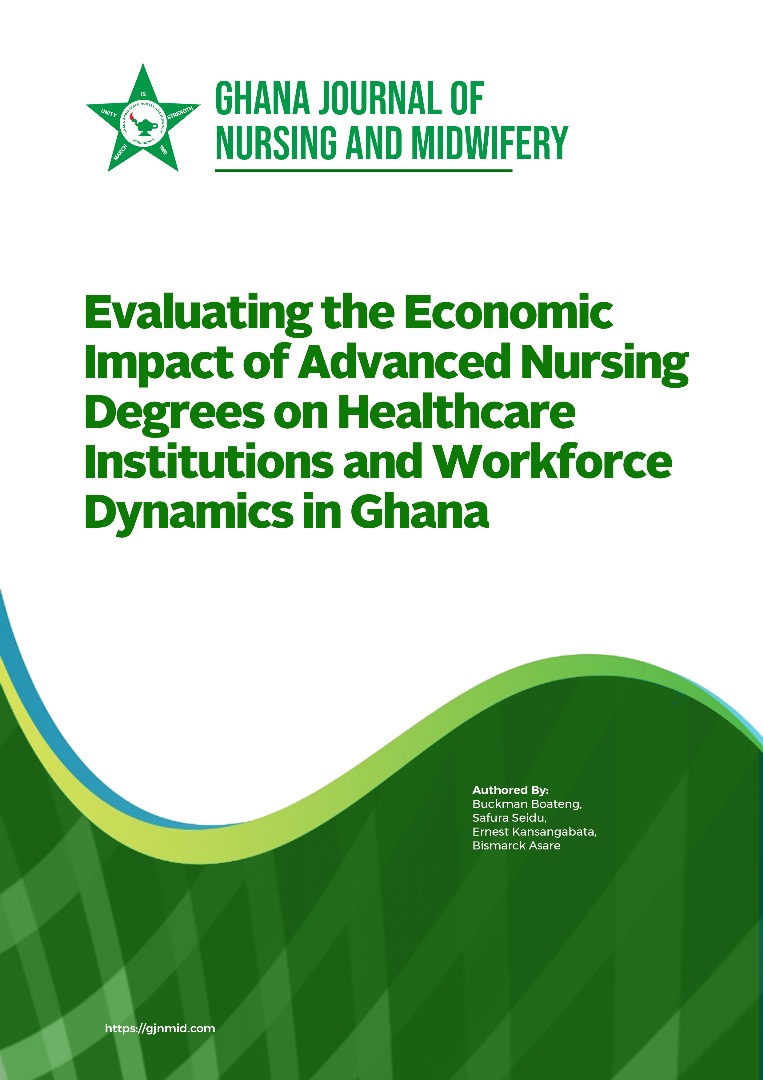Evaluating the Economic Impact of Advanced Nursing Degrees on Healthcare Institutions and Workforce Dynamics in Ghana
Main Article Content
Abstract
Purpose: This paper evaluates the potential economic impact of advanced nursing degrees on healthcare institutions and workforce dynamics in Ghana.
Method: A comprehensive literature review was conducted, analyzing international studies and applying economic theories to the Ghanaian context.
Findings: Advanced nursing degrees have the potential to improve cost-effectiveness, enhance quality of care, and reduce healthcare costs in Ghana. They may also positively impact workforce dynamics by improving job satisfaction, reducing brain drain, and enhancing interprofessional collaboration. However, implementation challenges include regulatory barriers, cultural resistance, and the need for substantial investment in education.
Conclusion: While advanced nursing degrees show promise for economic benefits in Ghana's healthcare system, their successful implementation requires careful planning, policy adjustments, and stakeholder support.
Recommendations: Ghana should invest in advanced nursing education, develop clear regulatory frameworks, and conduct Ghana-specific research to guide implementation.
Significance: This paper contributes to the limited literature on the economic impact of advanced nursing degrees in low- and middle-income countries, providing valuable insights for policymakers and healthcare leaders in Ghana and similar contexts.
Downloads
Article Details

This work is licensed under a Creative Commons Attribution 4.0 International License.
Copyright (c) 2024
This work is licensed under a Creative Commons Attribution 4.0 International License.






